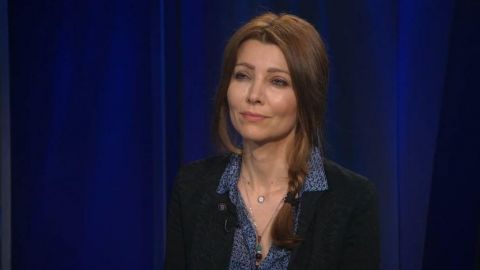Read Transcript EXPAND
CHRISTIANE AMANPOUR: What is the meaning of the title?
SHAFAK: I became very interested in these medical studies that show after the moment of death, after the heart has stopped beating, the human brain can continue to work, remains active for another few minutes. Particularly in Canada in an intensive care unit, doctors have observed persistent brain activity for about 10 minutes. And I want to add my own 38 seconds to that. As you’ve said, the main character is a sex worker. Right away on the first page we know that she has been brutally killed, her body has been dumped in a garbage can, but she is thinking in the way that the mind is working. And as she remembers her past minute by minute, we travel into the story of her life but also the story of Turkey and the Middle East, but always told through the eyes of outcasts.
AMANPOUR: So outcast is sort of a theme with you, and particularly women. I mean you’re very careful about your writing because you explore so many of the global issues from a female perspective, often from the down turn perspective, from the perspective of injustice and trying to rectify injustice. We’ll get to some of those books in a moment. But what does this story tell us about Turkey today?
SHAFAK: Well, I think in societies where democracy is lost and where we see an increase of populist authoritarianism, an increase of ultra-nationalism, fundamentalism, we also see an increase in bigotry, intolerance. And in sexual societies, I do believe that sexism also increases, homophobia also increases. This is not a coincidence. It goes — they all go hand in hand. And I believe in sexual societies, it becomes even more difficult to be different. If you happen to be different for whatever reason, the color of your skin, how you look, how you think, how you speak, for any reason, whatsoever, if you’re regarded as the other, life is much harder. And I think if writers — of course, as storytellers, we are interested in stories but I’d be very equally interested in silences and people who have been silenced.
AMANPOUR: And people have been silenced but also the country in a way has been silenced. I mean the last several years, we know that the community to protect journalists say Turkey is the biggest jailer of journalists. We know that since the 2016 attempted coup, so many, tens of thousands of members of civil society from judges to teachers to ordinary workers and others, intellectuals have been put in prison. Where do you see that going? Is that still going in that direction? Or as we’ve seen in some of the elections, like for the mayor of Istanbul, there is a little backlash now that’s working at the polls.
SHAFAK: Yes, I think that what happened with the local elections is, of course, incredibly important. As you know, on the last day of March, we had the elections. And in every major city, the opposition had won
About This Episode EXPAND
Will Jawando and Mark McKinnon lay out the state of the 2020 race. Ali Vaez and Christiane Amanpour discuss whether the U.S. and Iran are set on a collision course for war. Elif Shafak joins the program to discuss her book, “10 Minutes 38 Seconds in This Strange World.” Alicia Menendez speaks to novelist Kristen Arnett about her book, “Mostly Dead Things.”
LEARN MORE



